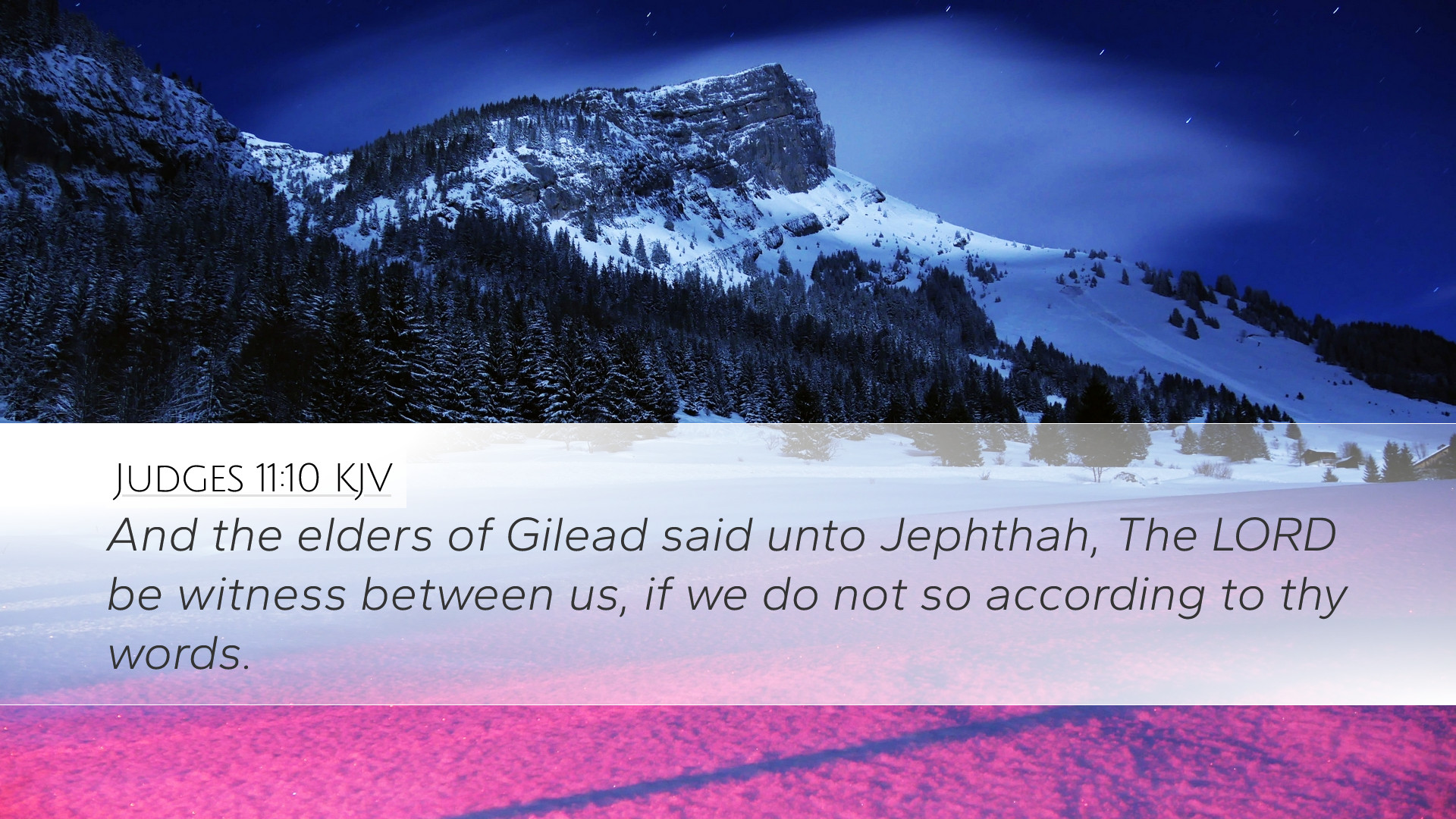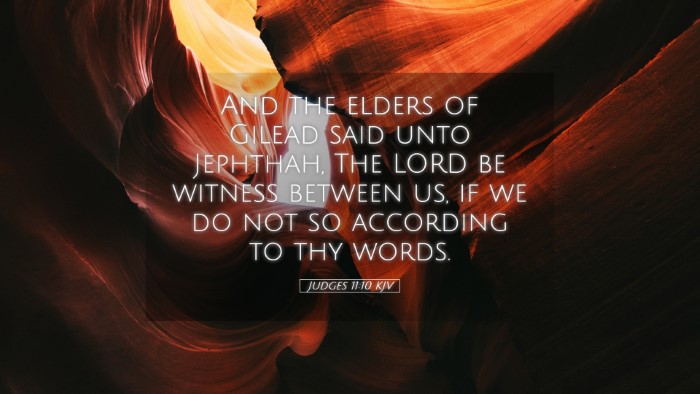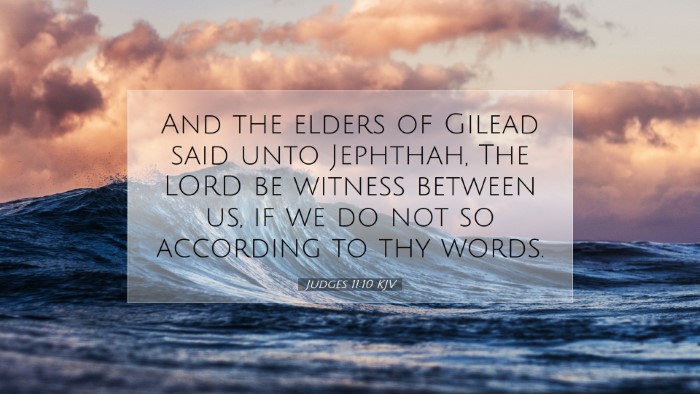Judges 11:10 - Commentary and Insights
Judges 11:10 states, "And the elders of Gilead said unto Jephthah, The LORD be witness between us, if we do not so according to thy words." This verse occurs as Jephthah is approached by the elders of Gilead who seek his leadership in facing the Ammonites. It highlights a significant moment in the unfolding narrative of judgeship in Israel.
Contextual Overview
The backdrop of this verse is set in the historical context of Israel's cycle of sin, oppression, repentance, and deliverance. Jephthah, an outcast son, emerges as a leader during a time of dire need. His appointment is not just a matter of political strategy but also involves deep spiritual implications as seen in the elders’ invocation of the LORD’s witness.
Commentary Insights
-
Matthew Henry's Commentary:
Henry emphasizes the integrity and sincerity of the elders of Gilead in appealing to Jephthah. He notes that their statement "The LORD be witness" underscores the seriousness of their commitment. Henry reflects on this phrase as a covenantal appeal, suggesting that the elders understood the weight of their words and the divine oversight over their agreement.
-
Albert Barnes' Commentary:
Barnes interprets this verse with an emphasis on the governance of Israel. He points out that the elders, representing the people of Gilead, recognized Jephthah's abilities and were willing to submit to him as their leader. Barnes notes the importance of the elders establishing their intent not just for Jephthah's sake but to honor the Lord's role in their decisions, indicating that their actions were to be aligned with divine guidance.
-
Adam Clarke's Commentary:
Clarke provides a detailed theological perspective, suggesting that the elders' acknowledgment of the Lord's presence was both a plea for divine favor and a recognition of their unworthiness. He underscores the significance of mutual accountability in leadership as they sought God’s witness in their dealings with Jephthah. Clarke also highlights the political dynamics at play and how they reflect the struggle for unity among tribes during times of crisis.
Theological Considerations
This verse opens up rich theological discussions regarding leadership, divine providence, and the covenantal nature of God’s relationship with Israel. The elders' oath not only affirms their loyalty to Jephthah but also to God’s sovereignty in their affairs.
1. Leadership and Authority
The elders' willingness to approach Jephthah marks a shift in authority structures within Israel. It raises questions about who is truly fit to lead. Biblical leadership is often characterized by humility, dependence on God, and effective communication. This passage invites contemporary leaders to reflect on how they seek divine confirmation in their leadership roles.
2. The Role of Community
The shared covenant made between Jephthah and the elders speaks to the importance of community in decision-making. The public acknowledgment of their commitment invites a collective responsibility, which is a critical element for any communal faith narrative.
3. Divine Witness
The invocation of the Lord as a witness emphasizes the seriousness of vows made in His presence. It serves as a reminder that every promise made in God’s name carries weight, calling for sincerity and faithfulness in actions and words.
Application for Today's Believers
For pastors, students, theologians, and Bible scholars, Judges 11:10 invites reflection on how the church engages in leadership and decision-making today. It challenges believers to consider how they align their actions with divine witness and the collective accountability of their communities.
- Encouragement to Seek God’s Guidance: Like the elders, modern believers are called to acknowledge the Lord’s sovereignty in every agreement and plan.
- The Importance of Integrity: In leadership roles, integrity is paramount; the oath should not only be a formality but a spiritual commitment.
- Community Engagement: Believers should strive for unity in leadership, recognizing their shared responsibilities as part of the body of Christ.
- Covenantal Relationships: Christians are in a new covenant with Christ, and as such, they are invited to reflect God’s faithfulness in their dealings with one another.
- Sincerity in Vows: Believers must be cautious in their commitments, knowing that the Lord stands as a witness to their promises.
Conclusion
Judges 11:10 serves as a vital reminder of the dynamics of leadership, community, and divine oversight in the life of Israel. The commitments made in this verse can guide the contemporary faith community in their pursuit of godly leadership, faithful service, and the establishment of a covenantal community anchored in the witness of the Lord.


